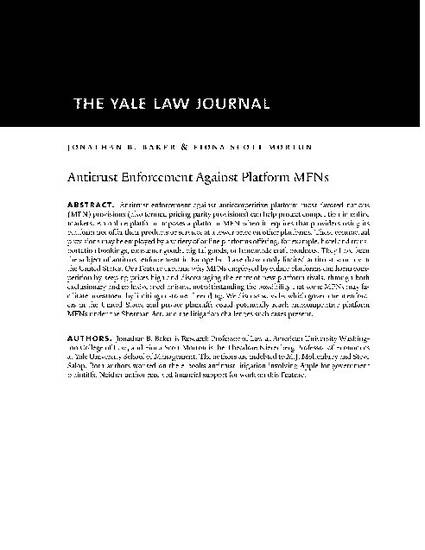
Yale Law Journal
Antitrust enforcement against anticompetitive platform most favored nations (MFN) provisions (also termed pricing parity provisions) can help protect competition in online markets. An online platform imposes a platform MFN when it requires that providers using its platform not offer their products or services at a lower price on other platforms. These contractual provisions may be employed by online platforms offering hotel and transportation bookings, consumer goods, digital goods, and handmade craft products. They have been the subject of antitrust enforcement in Europe but have drawn only limited antitrust scrutiny in the U.S. Our paper explains why MFNs employed by online platforms can harm competition by keeping prices high and discouraging the entry of new platform rivals, through both exclusionary and collusive mechanisms, notwithstanding the possibility that some MFNs may facilitate investment by limiting customer free-riding. We discuss ways by which government enforcers in the U.S. and private plaintiffs could potentially reach anticompetitive platform MFNs under the Sherman Act, and the litigation challenges such case present.
Available at: http://works.bepress.com/jonathan_baker/32/
